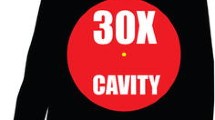Abstract
This study examined the prevalence of misconceptions and effects of head injury experience on the knowledge of head-injury sequelae in a college population. In comparison to previous studies, the college sample demonstrated a lower endorsement of misconceptions relative to the general population. Although there were some significant differences between head-injured and non-head injured subjects’ responses to several items, the overall patterns of responses for the two groups were quite similar. The results suggest that experience with head injury does not necessarily increase knowledge of head injury sequelae and may even bias perceptions in the direction toward increased misconceptions.
Similar content being viewed by others
References
Boake, C., Bobetic, K. M., and Bontke, C. F. (1991). Rehabilitation of the patient with mild traumatic brain injury.NeuroRehabilitation 1: 70–78.
Dricker, B. G. (1992). Profile of those at risk for minor head injury.J. Head Trauma Rehab. 7: 83–91.
Frey, W. F. (1995). Helping students to prevent or adjust to concussions.J. College Stud. Psychother. 10: 65–80.
Gouvier, W. D., Prestholdt, P. H., and Warner, M. S. (1988). A survey of common misconceptions about head injury and recovery.Arch. Clin. Neuropsychol. 3: 331–343.
Kay, T., Harrington, D. E., Adams, R., Anderson, T., Berrol, S., Cicerone, K., Dahlberg, C., Gerber, D., Goka, R., Harley, P., Hilt, J., Horn, L., Lehmkuhl, D., and Malec, J. (1993). Definition of mild traumatic brain injury.J. Head Trauma Rehab. 8: 86–87.
Lezak, M. D. (1986). Psychological implications of traumatic brain damage for the patient’s family.Rehab. Psychol. 31: 241–250.
Mittenberg, W., Tremont, G., Zielinski, R. E., Fichera, S., and Rayls, K. (1996). Cognitive-behavioral prevention of post concussion syndrome.Arch. Clin. Neuropsychol. 11: 139–145.
Willer, B., Johnson, W. E., Rempel, R. G., and Linn, R. (1993). A note concerning misconceptions of the general public about brain injury.Arch. Clin. Neuropsychol. 8: 461–465.
Author information
Authors and Affiliations
Rights and permissions
About this article
Cite this article
O’Jile, J.R., Ryan, L.M., Parks-Levy, J. et al. Effects of head injury experience on head injury misconceptions. Int J Rehab Health 3, 61–67 (1997). https://doi.org/10.1007/BF02766798
Issue Date:
DOI: https://doi.org/10.1007/BF02766798




